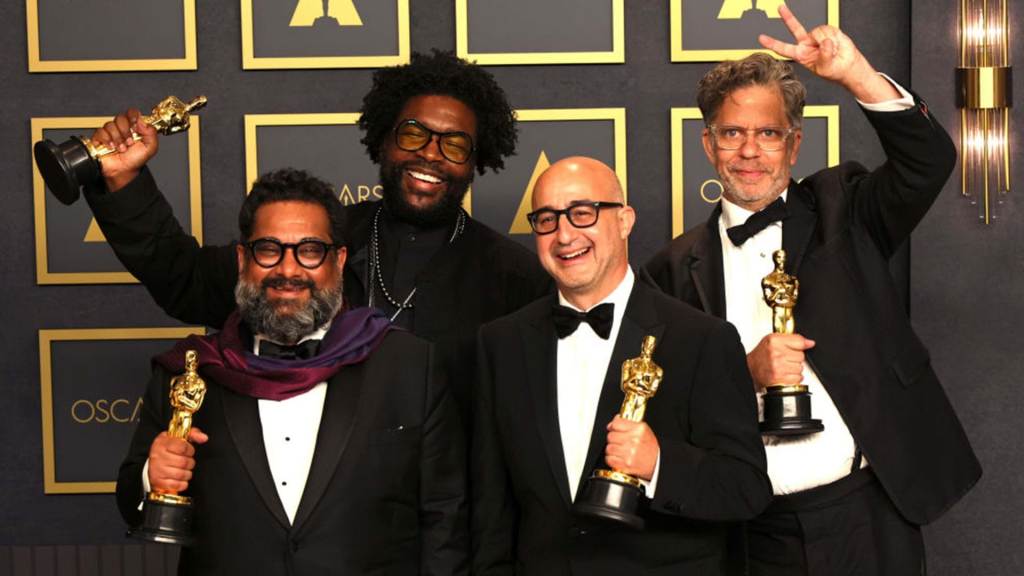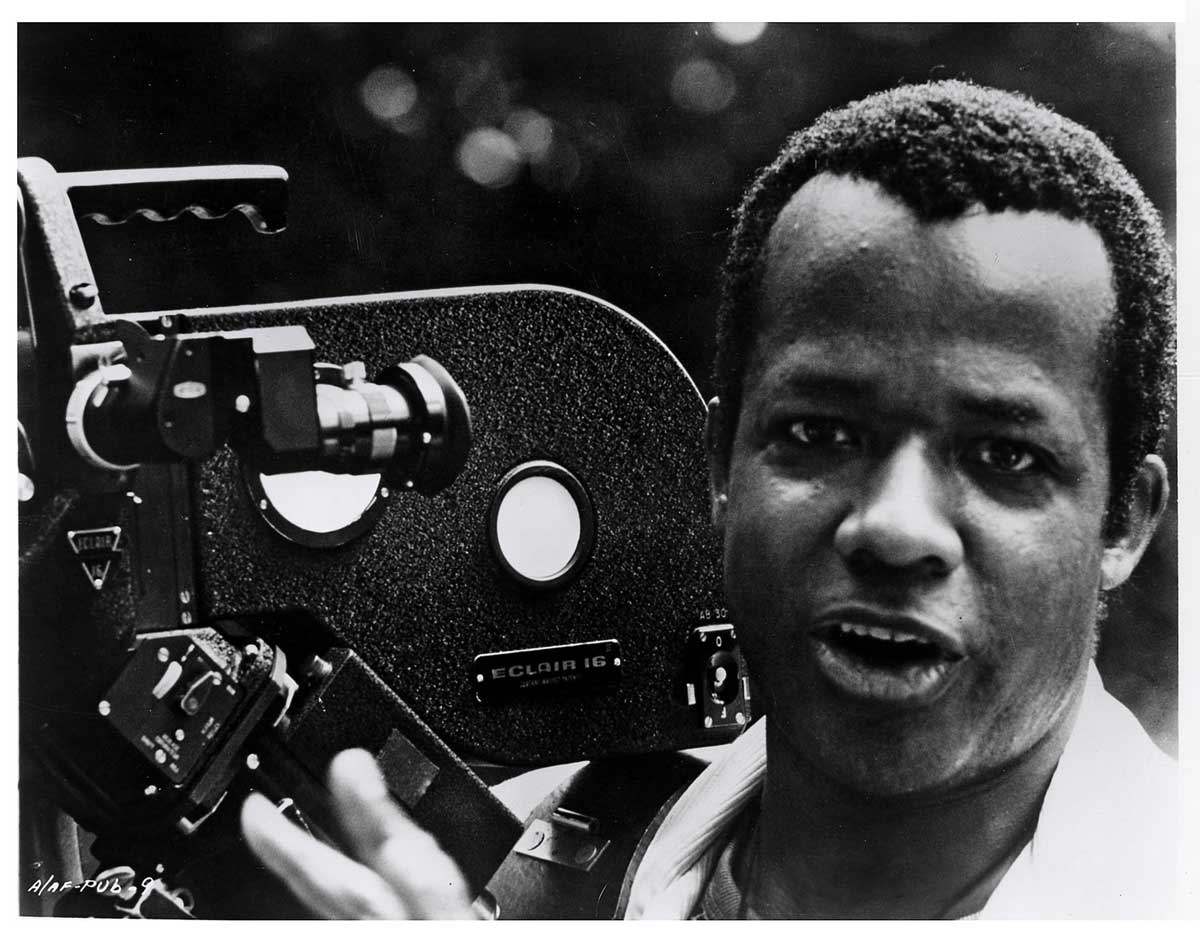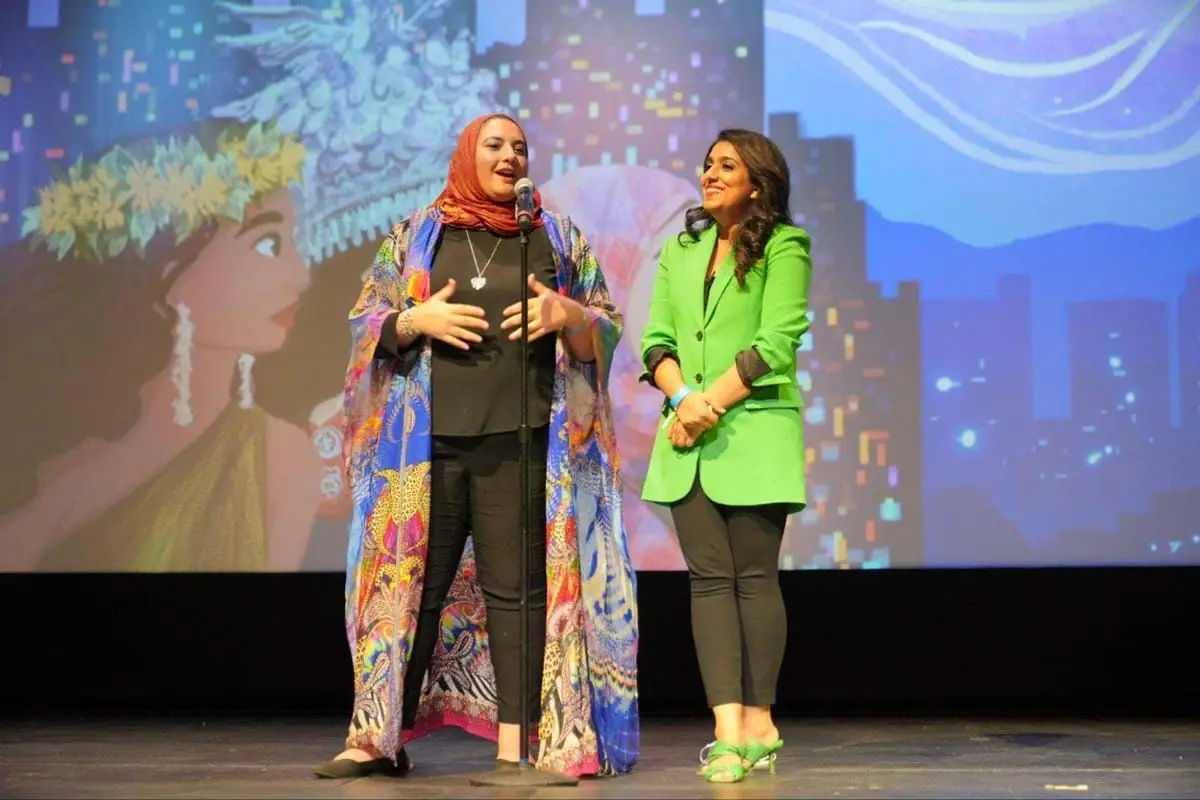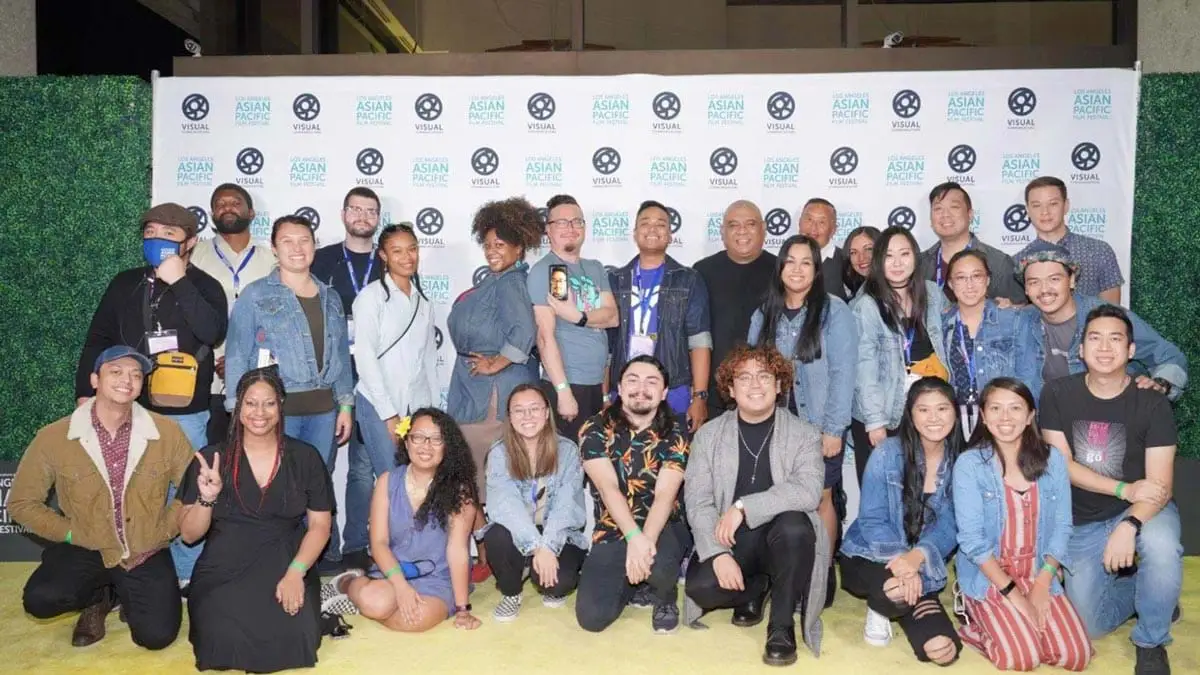 Getty Images
Getty ImagesThis year’s Academy Awards were a standout for the documentary community. For the first time, not one but four of the five nominees for best documentary were filmmakers of color.
In the last 21 years, only six filmmakers of color have taken home the Oscar for Best Documentary, including Amir “Questlove” Thompson for Summer of Soul (…Or, When the Revolution Could Not Be Televised). Considering the countless documentaries produced in a single year, reaching the coveted Oscar nomination list is out of reach for most filmmakers, but it’s even harder for filmmakers of color.
The road to the Academy Awards is paved with barriers both structural and cultural. Those filmmakers of color who do make it, like Stanley Nelson for Attica and Jessica Kingdon for Ascension, do so with the might and love of their community that believes in them and invests in their creative vision and practice.
At the onset of his career, Nelson was mentored by Wiliam Greaves, a pioneering Black filmmaker with over 200 documentaries to his name, best known for The Black Journal on public television. That invaluable support led Nelson to co-found Firelight Media, a powerful incubator that has supported over 100 filmmakers of color, including fellow nominee Kingdon. This pay-it-forward, lift-as-you-climb ethos is a hallmark of documentary organizations founded by people of color. It’s precisely this kind of support that filmmakers of color need to succeed in the highly competitive, predominantly white film industry.

Director William Greaves, here in 1974, had the support of public media to help distribute and promote his early projects as a filmmaker. He mentored and shepherded countless Black artists throughout his award-winning career.
That’s where we come in. We founded Color Congress, a first-of-its-kind initiative designed to build a strong and vibrant ecosystem of documentary organizations committed to nonfiction storytelling by, for and about people of color. Our vision is to transform the world of documentary filmmaking to strengthen the visibility, voice, and power of people of color, so the field—and film at large—can become a more powerful force for social change.
We were inspired by Beyond Inclusion: The Critical Role People of Color in the U.S. Documentary Ecosystem, a report written by myself, Sahar Driver, and published with Ford’s JustFilms in 2020. The report looks at not only the challenges facing filmmakers of color but, in particular, the important role organizations led by and serving people of color play in strengthening their authorship. Documentary is one of the most trusted sources of information and a medium that reaches people in ways that facts and figures simply cannot. It has the power to highlight underrepresented perspectives, make new connections, correct history, provide context, and interrupt narratives that lead to stereotypes and hate.
People of color, who are closest to some of the most pressing issues of the day, bring a rare depth and unique point-of-view to storytelling that’s unparalleled. They have the most at stake in getting a story about their own communities right. And yet rather than being trusted as authors of their own experiences, they continue to face structural barriers at every turn, from funding to distribution.
Beyond Inclusion looked at nearly 200 organizations serving people of color in the documentary field and pointed to about 90 led by people of color uniquely positioned to understand the hurdles facing filmmakers and other leaders in the space. Some offer fellowships and mentorships, others hold festivals to bring attention to the work of filmmakers of color. They work both locally and nationally, and the majority provide assistance across racial and ethnic identities while some focus their efforts on specific populations. And as Beyond Inclusion revealed, they remain steadfast in their commitment to serving filmmakers of color through shifting commercial or financial priorities, cultural tides, and other changing conditions.
Across the board, these organizations are working to address the challenges filmmakers face. They provide access to equipment and training, offer professional development opportunities to further their careers, support filmmakers to tell their stories on their own terms, center and nurture audiences of color, and build critical ecosystems that can help open new doors to funding, industry relationships and more. Most operate on small budgets and rely on a dramatically underpaid team, part-time staff and, in some cases, volunteers, and yet the repercussions of their work can be felt by generations of filmmakers. Simply put, the resources they receive fail to match the contributions they make.
Accessibility Statement
- All videos produced by the Ford Foundation since 2020 include captions and downloadable transcripts. For videos where visuals require additional understanding, we offer audio-described versions.
- We are continuing to make videos produced prior to 2020 accessible.
- Videos from third-party sources (those not produced by the Ford Foundation) may not have captions, accessible transcripts, or audio descriptions.
- To improve accessibility beyond our site, we’ve created a free video accessibility WordPress plug-in.
We created Color Congress not only to support the organizations that nurture the talents of filmmakers and leaders of color but also connect these organizations, so their collective efforts can reshape the field. For filmmakers of color operating in an industry more inclined to view people of color as subjects of documentaries rather than authors, the support these POC-led organizations offer can be a game-changer. Often they are led by filmmakers themselves who understand the challenges and are dedicated to supporting their peers and kicking down doors for them. They are the gate-openers, driven by an audacious vision of a film industry that’s fair and inclusive.
We are building a new collective of organizations as diverse and vital as the films that emerge from them. Our Congress includes groups like Femme Frontera in El Paso, Texas, which offers Spanish-speaking filmmaking classes for women and nonbinary filmmakers on the U.S.-Mexico border, and Comfrey Films, formerly known as House of Pentacles, in North Carolina, which supports young Black transgender storytellers. The support these organizations make for the communities they serve is a door through which bold new storytellers are entering the field.
Many of the organizations support artists through film festivals, such as Visual Communications, which has been supporting the storytelling of Asian American and Pacific Islander media-makers since the 1970s, and BlackStar, which celebrates and supports Black, Brown, and Indigenous artists out of Philadelphia. Their festivals are places audiences of color can find beautiful storytelling other festivals overlook—and places where filmmakers of color are celebrated as artists, not tokenized representatives of their communities. Their films are met by audiences of color who engage with them around their substance and craft, and they get an opportunity to think creatively in community and find inspiration. The value of spaces like these are immeasurable for filmmakers of color.
 Steven Lam
Steven Lam Steven Lam
Steven LamVisual Communications, a member of the Color Congress, develops and supports the voices of Asian American and Pacific Islander filmmakers and media artists who empower communities and challenge perspectives.
Other organizations focus their efforts on helping filmmakers of color get their works distributed and seen. Cinema Tropical offers a series of public programs that showcase Latin American cinema and conversations. The New Negress Film Society curates events, exhibitions, and conversations centering Black women’s storytelling. These organizations play invaluable roles as curators, shaping conversations, deepening the understanding of a filmmaker’s work and adding nuance to situate them within cultural contexts, and treating their craft with the care it deserves. Imagine the profound ways these efforts, in conversation with one another, could deepen our understanding about our communities.
The National Multicultural Alliance works to get stories by people of color resourced and distributed through public media, a hugely important platform for these filmmakers. The largest funder and distributor for nonfiction storytelling in the United States, ,the alliance includes Black Public Media, the Center for Asian American Media, Latino Public Broadcasting, Pacific Islanders in Communications, and Vision Maker Media. These five organizations are stepping stones so many celebrated filmmakers of color needed to become the auteurs they are today. The diverse field we see today would not exist if not for these organizations championing filmmakers of color, carving out a path to public funding, and establishing public television as the historic home for documentary film.
The collective power of this ecosystem—if properly resourced, connected and supported with a strong infrastructure—will be a potent force in creating a more diverse and equitable industry, and in doing so, a stronger democracy. Our hope is for the Color Congress to support the organizations supporting the artists who are redefining what’s possible with film. Our Congress paints a vibrant portrait of a future where people of color can harness the power of documentary as a mirror to their past—and a window into our shared future.
Sahar Driver, co-director of Color Congress
Sahar is a veteran documentary impact strategist, field builder, and researcher. Her career has focused on social and cultural transformation through nonfiction storytelling. She has led impact campaigns and strategy for over two dozen documentaries, independently and with Active Voice. She has designed and led impact trainings and grantmaking programs to support impact producers and filmmakers of color with Firelight Media. She piloted new models to strengthen impact practices for people working at the intersection of film and faith with Hartley Media Impact Initiative at Auburn. She worked with Doc Society to update the second edition of their Impact Field Guide and wrote the 2019 Impact Hi5 case studies. In 2020, she authored the Ford Foundation-commissioned report: Beyond Inclusion: The Critical Role of People of Color in the U.S. Documentary Ecosystem.
Sonya Childress, co-director of Color Congress
Sonya is a cultural strategist who believes in the power of film to animate social justice movements. She has served as Senior Fellow with the Perspective Fund where she conducted initiatives that moved the documentary field towards equity, transparency and impact. She spent 20 years leading high-profile impact and release campaigns at Firelight Media and Active Voice. Her writing has been commissioned for Documentary Magazine, SEEN Journal, Ford Foundation and MacArthur Foundation. She is a board member of the The Whitman Institute and Center for Cultural Power, a member of the Documentary Accountability Working Group, and was an inaugural JustFilms/Rockwood Fellow.

